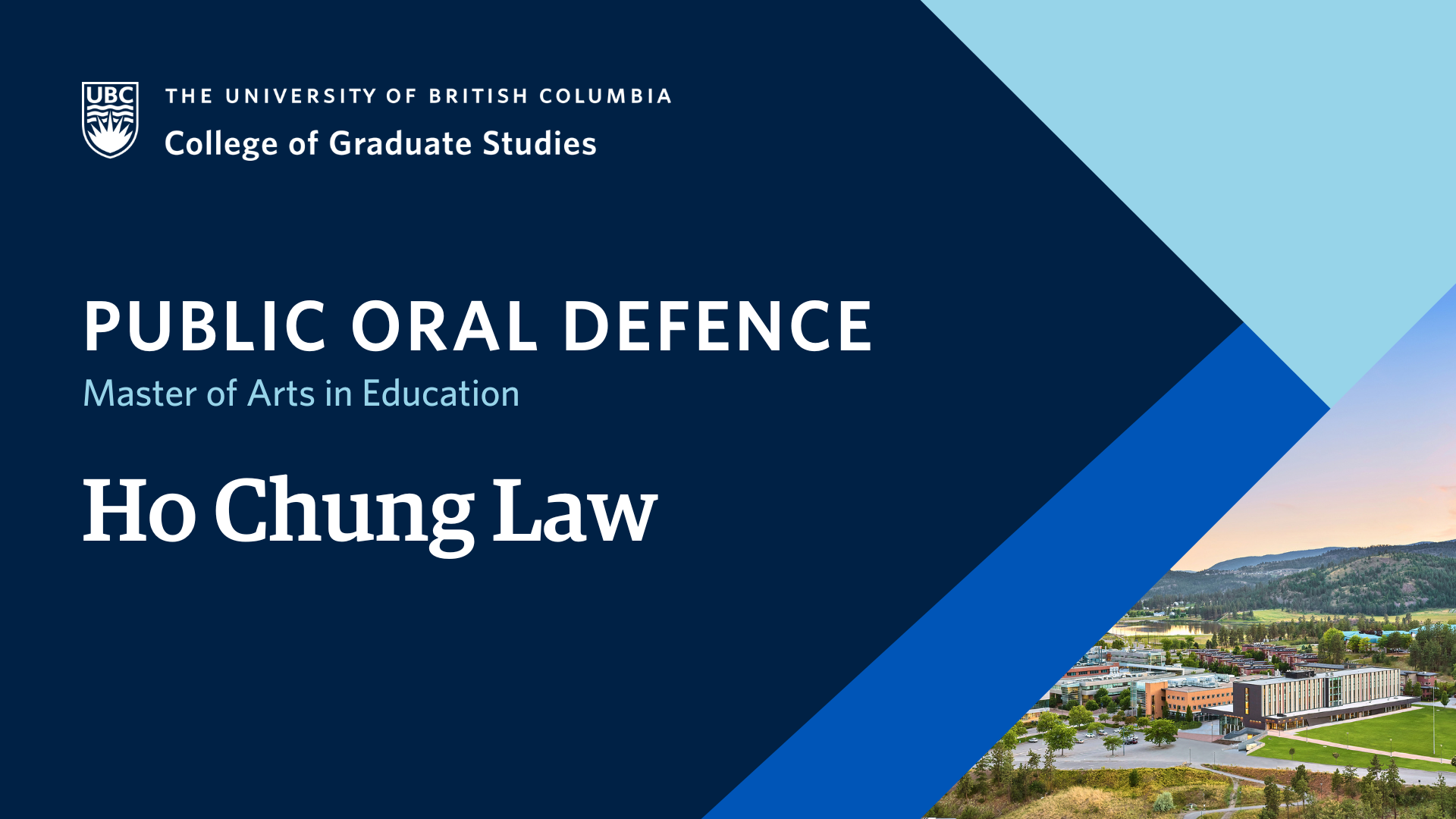
- This event has passed.
Thesis Defence: From Computational Thinking to Thoughtful Computing: Perspectives on Physical Computing in Maker-Centered Education
March 17, 2023 at 10:00 am - 1:00 pm

Ho Chung Law, supervised by Dr. Robert Campbell, will defend their dissertation titled “From Computational Thinking to Thoughtful Computing: Perspectives on Physical Computing in Maker-Centered Education” in partial fulfillment of the requirements for the degree of Master of Arts in Education.
An abstract for Ho Chung’s thesis is included below.
Examinations are open to all members of the campus community as well as the general public. Registration is not required for in-person defences.
ABSTRACT
Many believe that computational thinking (CT) is a problem-solving skill that everyone should learn. In K-12 education, there is an increasing interest in teaching CT through physical computing, which involves the use of programmable devices to create useful interactive artifacts, like robots. Research has found that physical computing can support CT education, however, little research is aimed at understanding prospective educators’ viewpoints about CT based on their lived experiences with physical computing. To fill this research gap, a qualitative and exploratory case study was conducted using a physical computing device called a Micro:bit. Six participants with different academic backgrounds were recruited from a university in Western Canada. Each participant was given a Micro:bit maker kit and one month to work on a sustainable development project at home. Participants were supported remotely through a learning blog and video conferencing software. Data about participants’ viewpoints and experiences were collected online from surveys, workshops, support sessions, individual interviews, and participants’ blog posts. A thematic analysis was conducted to understand what participants think CT means, how to teach CT with Micro:bits, and the participants’ overall learning experiences. Participants’ viewpoints about CT were summarized into an operational definition of CT comprising five criteria for observing CT in daily life. Three cognitive and three affective strategies of teaching CT through physical computing were also identified. Participants’ lived experiences showed that physical computing can provide learners with a sense of empowerment, and facilitate learners’ intellectual and emotional development. These findings conform to the theoretical constructs of critical pedagogy and constructionism. Three major challenges that limited participants’ collaboration, engagement, and communication in remote learning were also found. The findings suggest that future research can focus more on the emotional development aspects of CT to nurture learners’ creativity, empathy, and critical thinking skills to solve real-world issues using CT and physical computing.